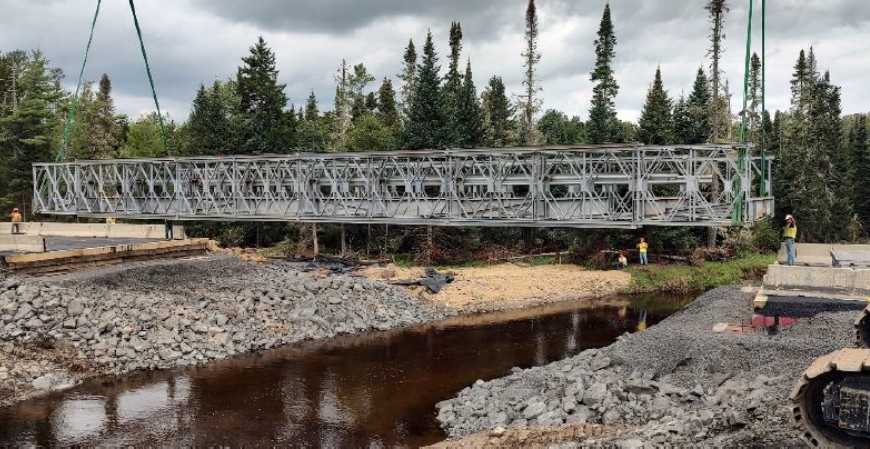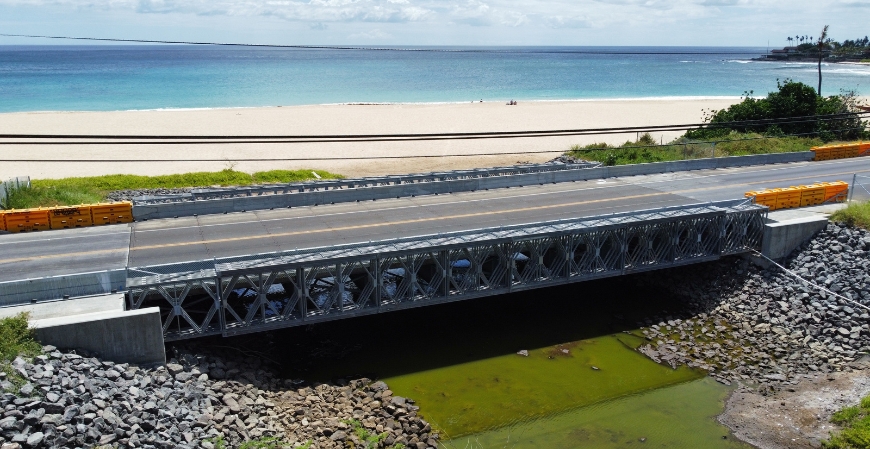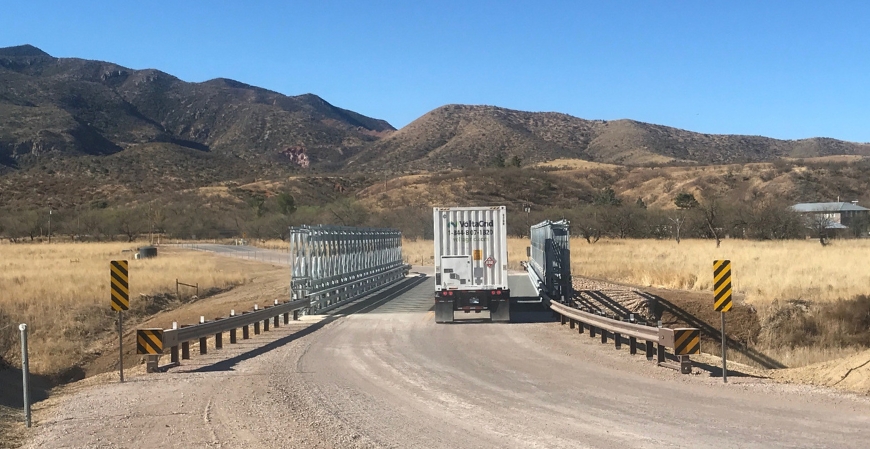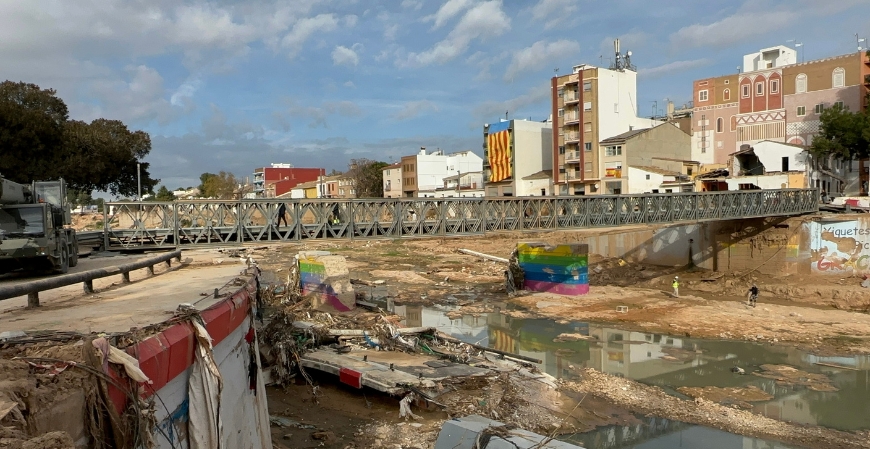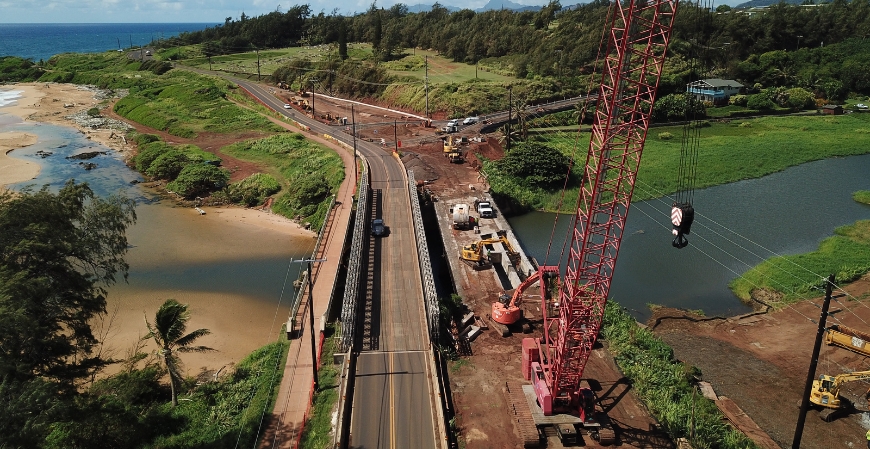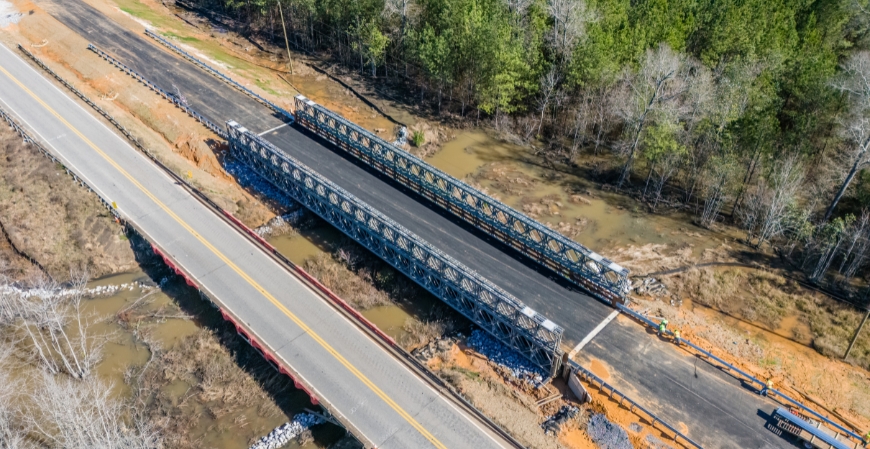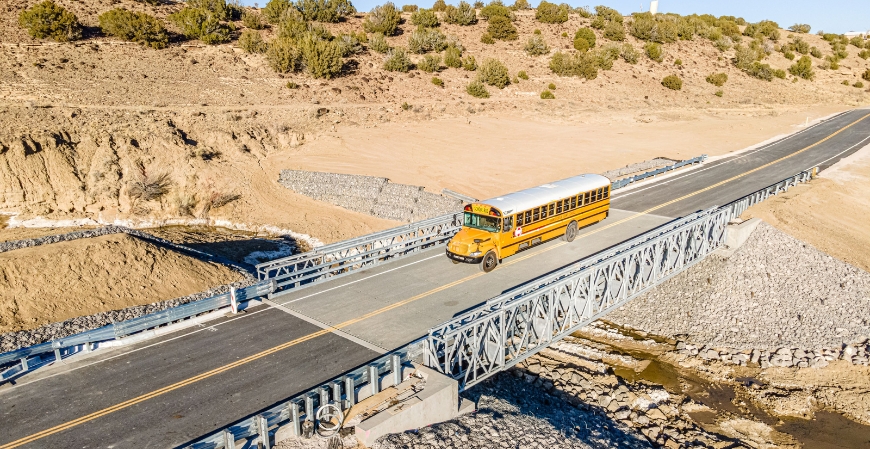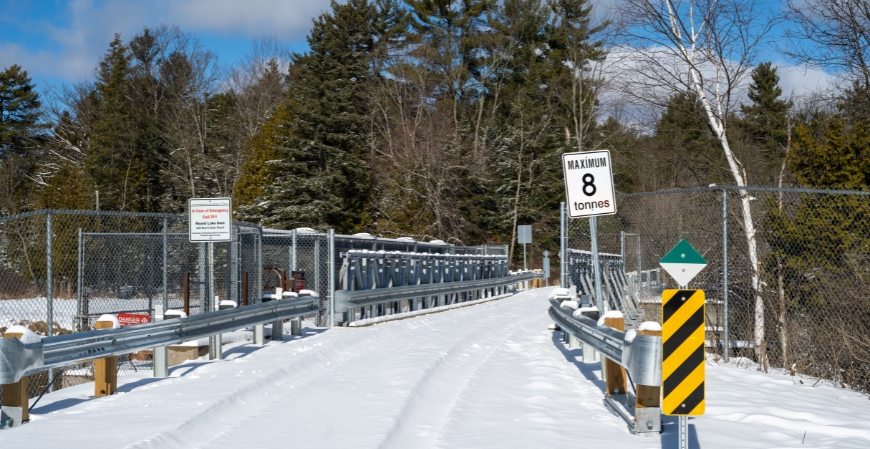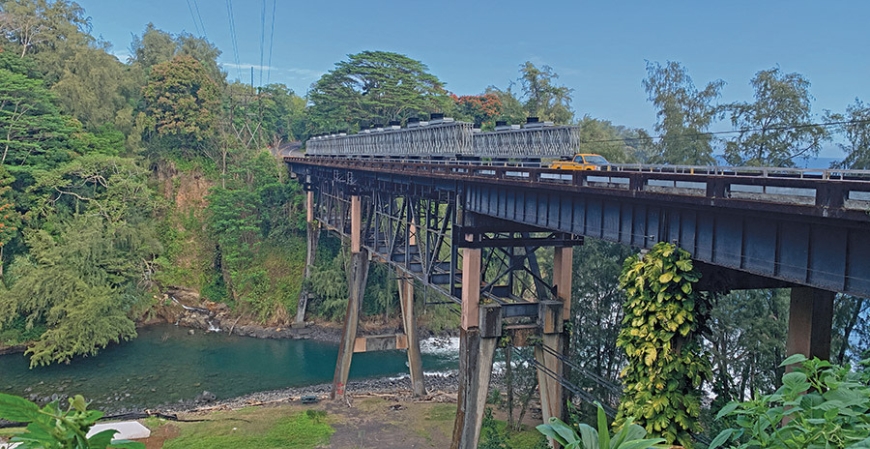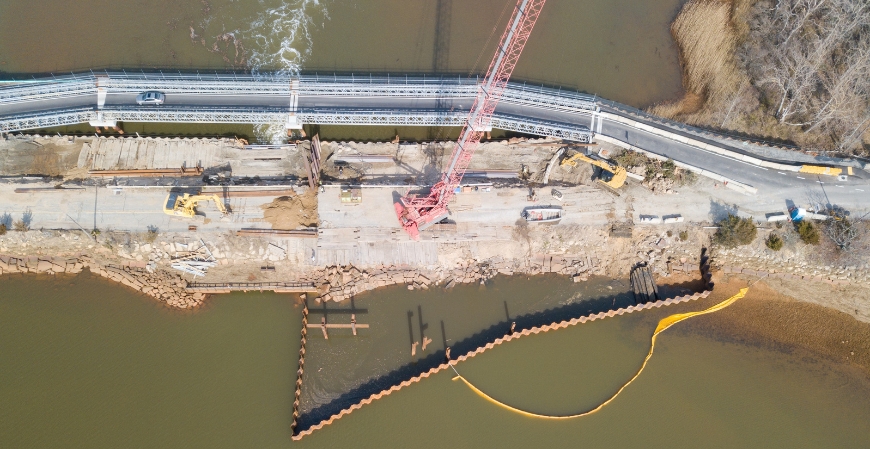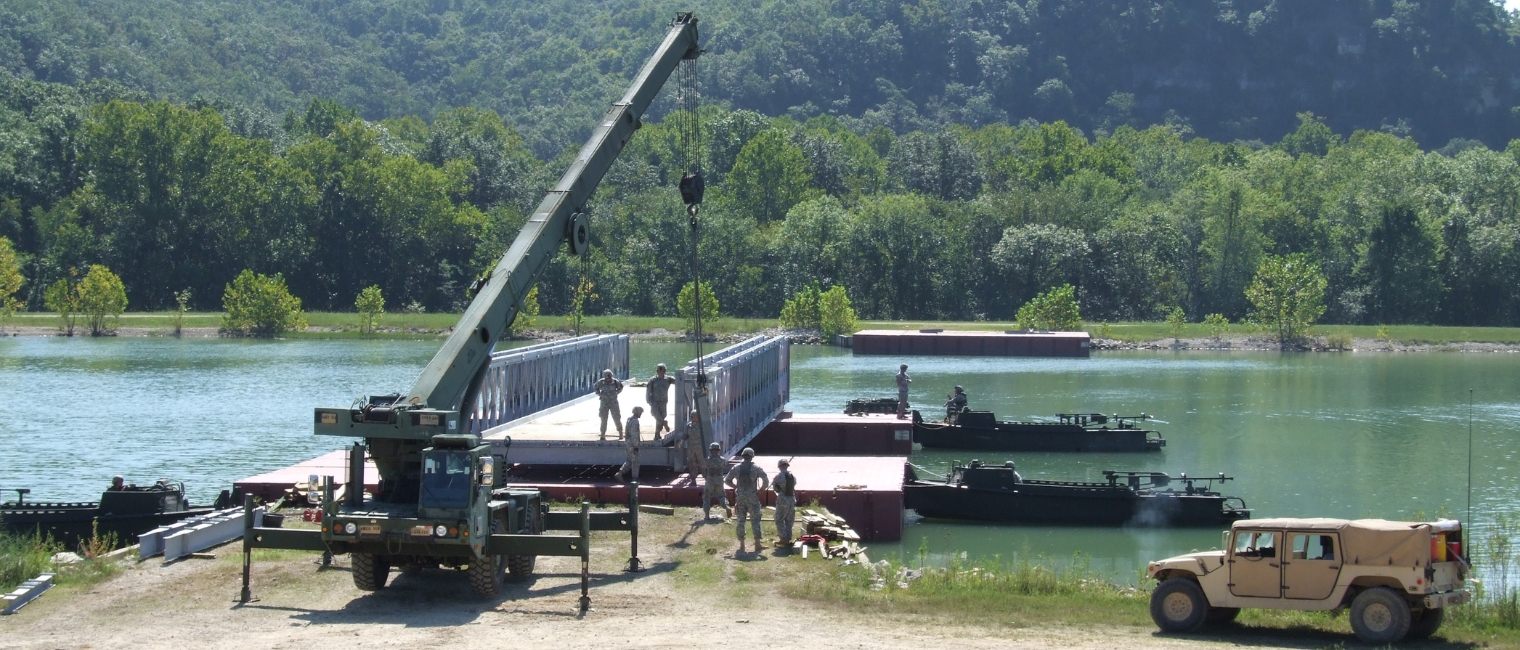
Ready-to-assemble roadway bridges offer permanent access for supply runs and other deployment needs and serve as vital lifelines during natural catastrophes
Acrow Bridge has had a long-standing partnership with the U.S. Army, providing bridges used during deployment to bridge gaps for supply runs and other permanent route access needs. Soldiers are trained at Fort Leonard Wood, MO on both building and maintaining the bridges, which are capable of carrying the weight of the military’s heavy metal fleet and tracked vehicles. In September 2013, 120 soldiers from the 814th Multi-Role Bridge Company, Fort Polk, LA, were brought to Fort Leonard Wood to get hands-on training with the bridges they will be building during deployment. It is critical for these soldiers to get their hands on the bridges – to feel the weight and what it takes to put it together, so that they know what they are doing when they are in unfamiliar territory. The Acrow Bridge is the largest bridge the U.S. Army uses.
Emergency Response Program
In addition to ongoing deployment needs, the U.S. Army has partnered with Acrow as part of an emergency response program. In January 2014, The U.S. Army Security Assistance Command (USASAC) bought four prefabricated modular bridges worth $6.7m from Acrow and provided them to Nepal as part of their program to help regions around the world respond quickly to national emergencies. Nepal is vulnerable to a host of natural disasters, including landslides, avalanches, earthquakes, and floods. The bridges were delivered to Nepal through its Foreign Military Sales program with shipments starting in January and completed by the end of July 2014.
Acrow bridges are assembled from steel bridge components that can be quickly transported, assembled, and reused wherever they are needed. The Acrow bridges sent to Nepal will be stored along the country’s major highways to keep a main supply route open in the event of a disaster. The bridges are over 76 meters long and 5 meters wide, with a load capacity of up to 120 tonnes. They can be assembled within 12 hours to different lengths and widths, using minimal equipment.
“All over the world, Acrow bridges connect people to the necessities they need to return to normal life or to enrich and sustain their daily health and wellbeing,” said Bill Killeen, President and CEO of Acrow. “We are proud to provide a solution that works well in a variety of situations and delivers immediate benefits to surrounding communities.”
A small delegation of Nepalese Army personnel completed a week-long training course on bridge assembly and maintenance at Acrow’s facilities in New Jersey. They experienced hands-on bridge assemblies in various configurations and practiced assembling a small scale bridge launch to understand the principles of a cantilevered bridge system. They will serve as trainers to help the Nepalese Army provide emergency response and humanitarian relief when needed. As an ongoing service, Acrow will provide follow-up training to approximately 50 Nepalese Army personnel in Nepal in early 2015.
Transportation Resumes After Nepal Landslide with the Installation of an Acrow Bridge
On August 2, 2014 a huge landslide in Nepal’s Sindhupalchowk district blocked a major part of the Araniko highway that connects Nepal with Tibet. The Nepalese Army installed one of the recently supplied Acrow Bridges over the Sunkoshi River, reconnecting the Khadichaur to Sunkoshi portion of the highway allowing vehicular movement to resume. The Nepalese Army started constructing the base for the Acrow Bridge on September 17th and the bridge was opened for public use on September 28th. The bridge is 120 feet long, 5.5 meters wide and has the capacity to carry vehicles weighing up to 30 tonnes.
International Military Partnerships
Australian Department of Defense
Acrow’s partnership with the Australian Department of Defense (ADOD) goes back to early 2004 when the ADOD was looking for a new generation of Line of Communication Bridges. Acrow competed with European companies on the bid and was awarded the contract. Acrow supplied 35 one and two-lane bridges, shipped to 5 different locations in Australia. As part of the contract, Acrow provided both classroom and in the field training, prepared a detailed operations manual, conducted full scale testing of a bridge at the Australian School for Military Engineering in Liverpool outside of Sydney, and provided ongoing management support. The Acrow team worked directly with the Australian Royal Engineers out of Victoria Barracks in Melbourne. ADOD is now standardized on Acrow Bridge as its Line of Communication Bridge to keep supplies flowing. The Acrow Bridges are also available to be used by ADOD to help other nations in their part of the globe, such as Papua New Guinea, the Easter Islands, Micronesia, etc. The project spanned a number of years, starting in March 2004, with all deliverables completed in December 2007.
Army of Chile
Acrow has supplied dozens of bridges to the Chilean military, including the 1.46km, two-lane bridge in Concepcion over the Bio Bio River, which was supplied during the recent rebuilding efforts following the February 2010 earthquake. The bridge was installed in 81 days, which was paramount to reestablish Concepcion’s major transportation lifeline as quickly as possible. As part of the partnership, Acrow provided extensive training to the military personnel.
Other Collaborations
Other military collaborations include a joint venture between the U.S. military in Wisconsin and the Canadian Department of National Defense, a joint engineering mission with the Afghan National Security Forces to install a bridge complex spanning the Helmand River in southwest Afghanistan in early 2013, and the supply of dozens of bridges to the Military of Indonesia, the Israeli Defense Forces as well as the Colombian military and the Botswana military.
